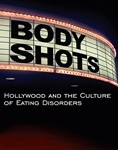The
ASTM Standards and Engineering Digital Library (SEDL) is a vast online downloadable collection of industry-leading standards and technical engineering information which is now available at Northeastern University Libraries. It covers a broad range of engineering disciplines, including aerospace, biomedical, chemical, civil, environmental, geological, health and safety, industrial, materials science, mechanical, nuclear, petroleum, soil science, and solar engineering.
The
SEDL includes all current ASTM standards! Get on-demand access to these, as well as technical papers, chapters, and books. SEDL content includes:
- 13,000+ ASTM standards
- 1,400+ books
- 15,000+ journal articles
- 47,000+ total papers, chapters, and articles
Users can access ASTM’s 13,000 standards in more than 130 industry areas as well as more than 40-year collections of special technical publications (STPs), manuals, monographs, data series, and journals. Content is updated twice weekly.
STPs cover ferrous and non-ferrous metals, materials testing, building codes, construction, geoenvironmental, geotechnical, paints and coatings, petroleum products and lubricants, plastics, rubber, textiles, water, safety, consumer-product testing, and packaging and labeling.
Examples of full text manuals/monographs/data series:
Business Performance Excellence through Total Quality Management – 2nd Edition
Pekar Jack. 2009.
Intensive Quenching Systems: Engineering and Design – Kobasko N., Aronov M., Powell J., Totten G. 2010
Standard Specification for Total Knee Prosthesis. 2010
Manual on Presentation of Data and Control Chart Analysis– 8th Edition Neubauer, Dean 2010
Moisture Control in Buildings: The Key Factor in Mold Prevention—2nd Edition
Trechsel Heinz, Bomberg Mark. 2009.
Help is available from the link at the left of each screen. An additional link to Search Tips is also included on some search screens.
